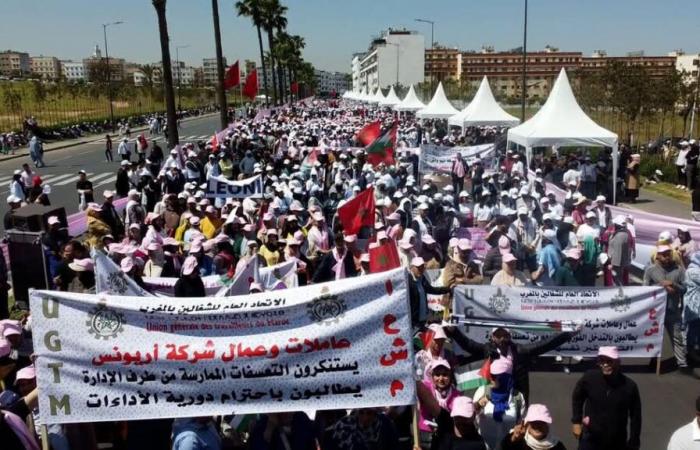Unlike the previous year, the executive and the social partners returned stiff after the April session of the social dialogue. The government has played the cordiality card by reserving a warm welcome from the unions filling them with praise without conceding, however, new “gifts”.
Faced with the many thorny files on the table, the executive preferred to temper by capitalizing on the achievements. In a statement of assessment, the government seems to remind unions how benevolent it has been towards them, congratulating itself to be one of the most generous governments towards the unions with a historic invoice of the social dialogue estimated at 45.738 billion dirhams by 2026.
Executive satisfaction
The ministers concerned, including that of economic inclusion, Younes Sekkouri, succeeded themselves in the aftermath of the talks to boast their balance sheet. Basically, the government is pleased to have been able to increase the average salary in the public service to 10,100 dirhams against 8,237 dirhams in 2021. Ditto for the minimum wage which will reach 4,500 dirhams instead of 3000, an increase of 50%. Younes Sekkouri also delighted that the average salary in the private sector is valued by 20%.
In a context where purchasing power remains eroded by inflation, the executive boasts the merits of the income tax reform which made it possible to put 4000 additional dirhams in the pockets of most of the employees, whether in the public or the private sector. Across January 1, 2025, this revision cost 6 billion dirhams of tax revenue.
Standing files
Now the government prefers to liquidate the social agreement of April 29, 2024 before venturing into a new commitment. Several promises that have remained pending such as the second slice of the general increase in wages of 500 dirhams. This should be activated in July 2025.
Although the April round has not led to new agreements, the government does not close the door regarding the files on stand-by, including the subjects relating to sectoral dialogue. Health, education, local authorities … The demands of civil servants are in all sides. Priority is granted to communities, whose 84,000 employees are impatiently awaiting their new status with the many advantages that go with it. It all depends on the next meeting scheduled for May 13.
The prudent optimism of the UGTM!
The unions remain demanding. They took the opportunity of the Labor Day to defend their claims. For its part, the UGTM remains cautiously optimistic about others. During a meeting in Casablanca, the secretary general of the General Union of Workers of Morocco (UGTM), Ennaam Mayara, was optimistic. “The UGTM trusts social dialogue to move forward,” he said. This optimism does not prevent the Istiqlalian union from remaining firmly attached to its claim, explains Youssef Allakouch, member of the Executive Office of the UGTM, in a declaration to “opinion”.
Pension reform: Nizar Baraka reassures
All files remain easily manageable compared to the spiners pension reform, which the government dread the most. The secretary general of the Istiqlal party, Nizar Baraka, tried to give visibility to the unions during the UGTM rally during the Labor Day. He declared himself favorable to a reform preserving the achievements of employees. Faced with large activists, he recalled the government’s determination to begin this reform which, according to him, must not be limited to a parametric adjustment.
The Istiqlal leader assured that the components of the executive ensure that the reform is not to the detriment of the acquired acquired class, adding that the government seeks a global agreement with the union centers, which is unanimous. In this regard, Mr. Baraka reiterated the commitment of the Istiqlal party to defend the purchasing power of employees.
The government and the social partners have agreed to relaunch the mixed commission responsible for the pension reform to start this project within the framework of a participatory approach. Thorny questions remain to be decided, namely the planned recovery of the legal retirement age, which should be, according to estimates, brought to 65 years. This is not unanimous, especially within the union front. Also, the level of pensions and contributions remains to be decided.








